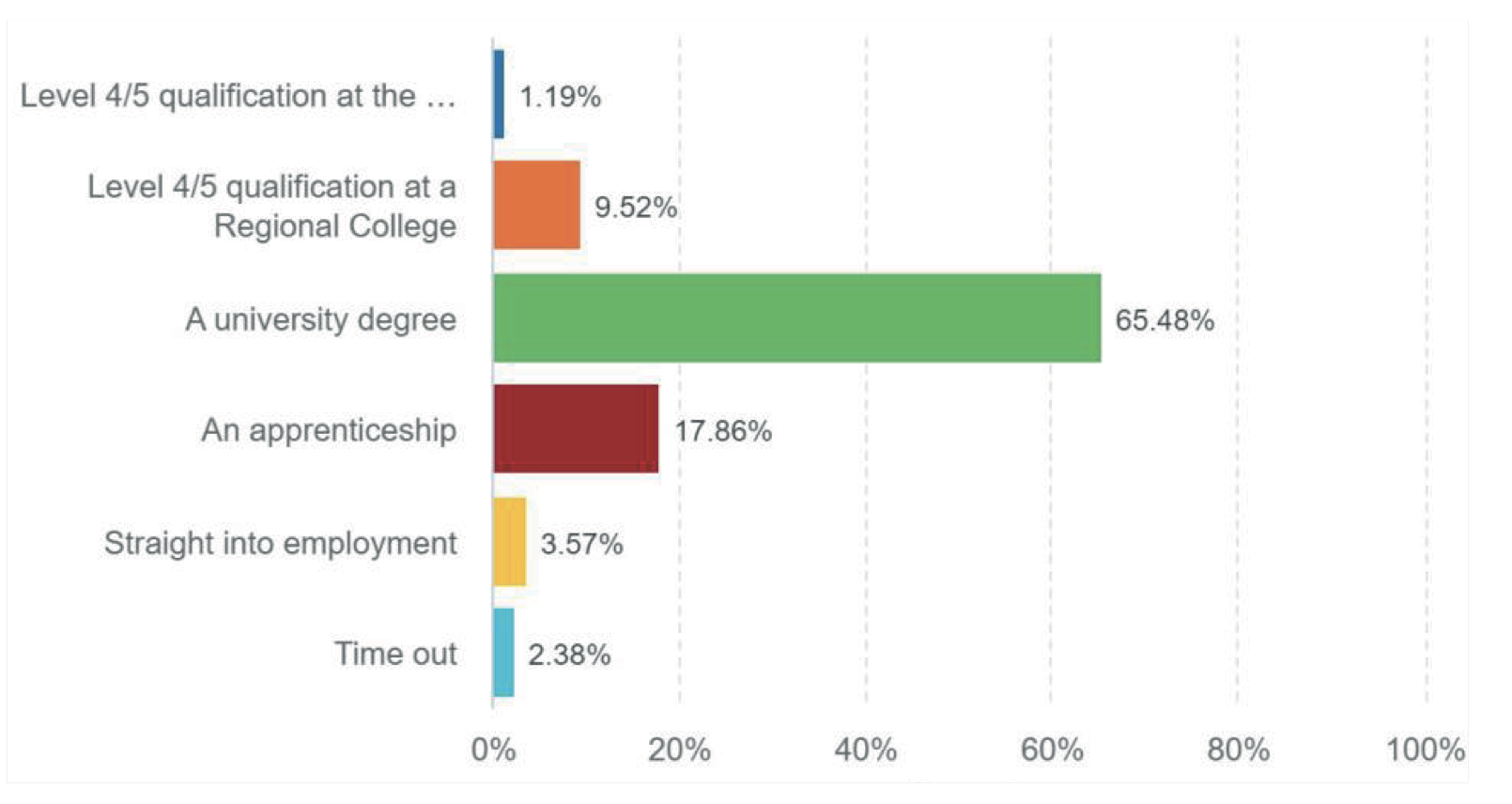Skills supply gap faces ‘stigma’ challenge

Moves to address a predicted annual shortfall of some 2,000 level four and level five qualifications over the next decade are not being aided by a societal ‘stigma’ around vocational qualifications.
Covering things like apprenticeships, higher national diplomas (HNDs), professional qualifications and national vocational qualifications (NVQs), level four and level five qualifications sit between A-levels and an undergraduate degree and have been identified as areas of undersupply in ambitions to rebalance the economy.
In March 2022, the Northern Ireland Skills Barometer 2021 update highlighted that overall demand for skills is set to outstrip supply, with the most significant undersupply to be found at levels three to five and an annual shortfall of 1,900 level four and level five qualifiers over the next decade. Specific fields identified for significant shortages include health, public services and care, engineering and manufacturing technologies, finance, and law.
Declining enrolments, evidently exacerbated by the pandemic, and the forecasted undersupply of labour market skills at levels four and five had prompted a wider review into the higher education provision in further education by the Department for the Economy (DfE). As part of the review, the Department commissioned research looking at perceptions of level four and five qualifications in Northern Ireland.
The review identified a social stigma stopping some young people taking vocational qualifications, instead favouring a university degree.
Despite feedback from current level four and five learners finding courses to be “attractive, useful and valuable”, outside of the FE/CAFRE sectors, levels of awareness and understanding of level four and five qualifications are “patchy” and “often very low”.
Current learners and tutors highlighted a range of positive experiences ranging from perceived high levels of skills development and strong links to employers to lower costs and greater accessibility of the qualifications. Similarly, employers interviewed about higher level apprentices described a mutual benefit to employers and apprentices, and benefits of a supportive and pastoral learning environment.
Parents’ preferred study/employment path for child

However, the findings also reveal the existence of a “culturally perpetuated stigma of failing to get into university”, and wider social misconceptions that level four and five qualifications were not viable options due to the perceptions that they would not get students far enough or were unlikely to be able to lead to secure, future employment. As a result, study in further education college is often seen as a plan B, compared to going to university.
The significance of the existing stigma around vocational education can be seen not only in the need to bridge the skill supply gap for the future, but also by the fact that trends which have led to an imbalance appear to be accelerating further. In 2020 and 2021, Northern Ireland recorded its highest rates of school leavers entering university, coinciding with a fall in the number of school leavers entering further education colleges.
Highlighting a “widespread preference for university-based study (over FE) and an enduring stigma surrounding vocational education and training more generally”, the research adds that this less favourable comparison and inevitable societal stigma “appears to be reinforced both at school, by peers and teachers and at home by family or parents”.
The research reveals “limited” knowledge about level four and five qualifications including low levels of awareness and understanding of level four and five entry requirements and the subjects offered by not only prospective learners but also by parents/carers and teachers.
A range of issues identified for this existing lack of awareness and understanding includes:
• the proliferation of qualifications;
• terminology leading to confusion;
• the absence of a centralised application and admissions system, similar to the UCAS system for university admissions;
• inconsistent and inadequate careers information in some schools; and
• Covid-19’s prevention of face-to-face work experience.
Many of these issues are central to recommendations made by the research, which concludes by highlighting that while many strengths and advantages of level four and five qualifications can be found, there are significant challenges in addressing awareness, knowledge and understanding amongst most stakeholders.
“The time is now ripe for review and there is evidence of a desire among prospective learners and their parents to find out more about these often undervalued vocational qualifications which could offer so much to many more learners than are currently aware of them,” the research states.






